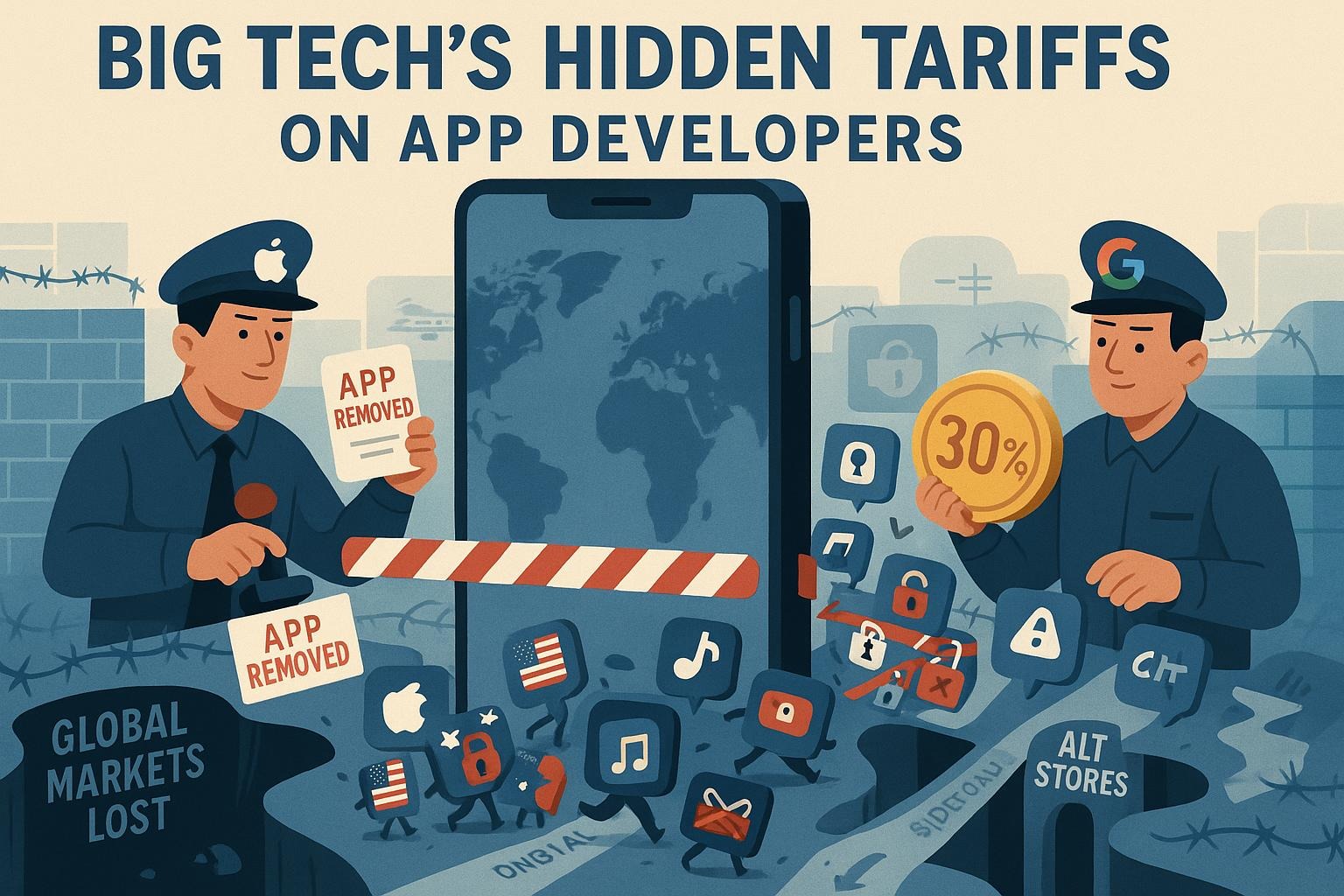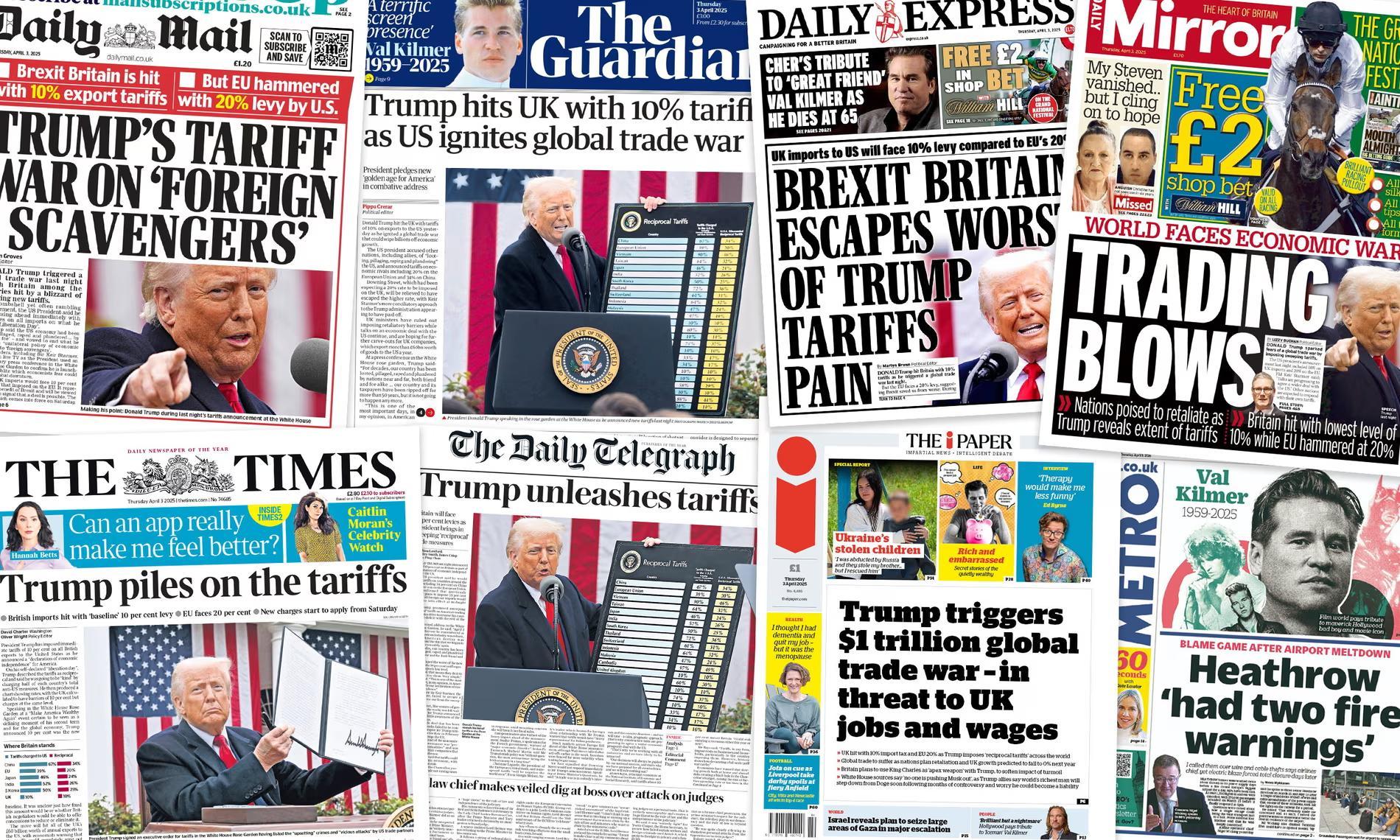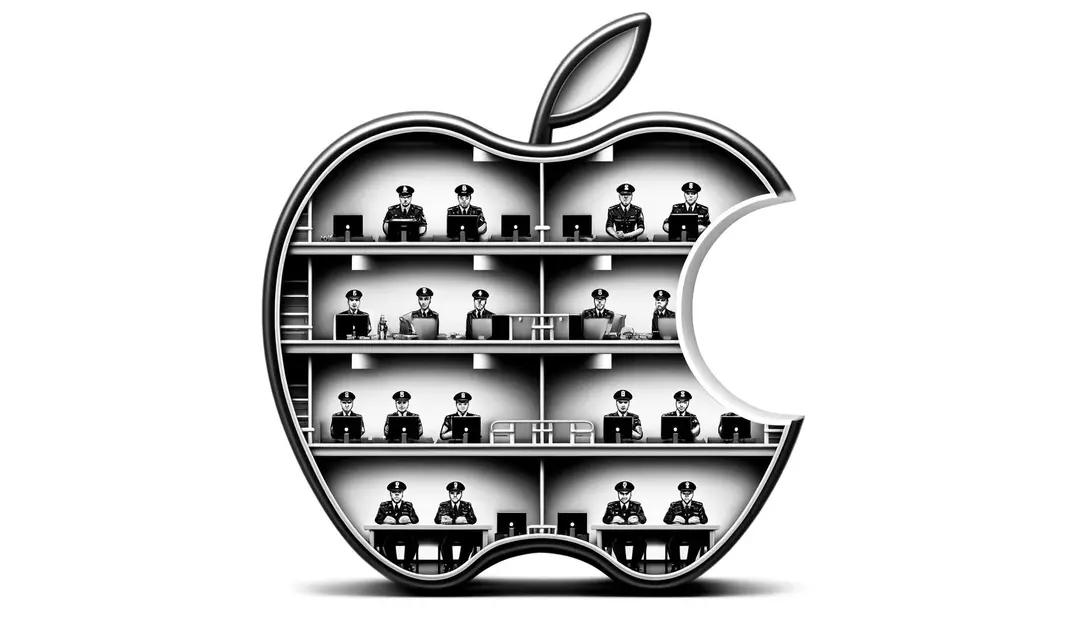Hidden Tariffs: How Apple and Google Quietly Block U.S. Businesses Abroad

Recent headlines spotlight the Trump administration’s aggressive trade policies, particularly tariffs. These visible trade barriers are openly debated, transparent, and highly publicized. Yet, tariffs extend beyond physical borders.
Apple and Google enforce their own hidden trade restrictions, quietly controlling digital trade and imposing invisible barriers that block American digital products from reaching global markets. These hidden tariffs effectively undercut U.S. businesses, harming innovation and market opportunities abroad.
Big Tech’s Hidden Tariffs on App Developers
On December 31, 2020, Apple removed over 46,000 apps from its China App Store in a single day without providing any explanation to the media. Reports speculated that the removals were due to the Chinese government's enforcement of game licensing requirements, highlighting examples such as NBA 2K20 and Assassin’s Creed Identity. However, the same reports indicated that games accounted for only about 39,000 of the total removed apps, leaving a notable discrepancy of approximately 7,000 apps unexplained—a fact Apple did not publicly address. Such a sweeping removal wave directly impacted hundreds, if not thousands, of smaller American developers by abruptly cutting off their access to this critical global market.
Apple and Google strategically leverage data and privacy regulations as compliance tools, imposing disproportionate burdens on smaller app developers. Instead of establishing consistent and fair global standards, they selectively enforce local laws to solidify their dominance. This selective enforcement effectively becomes a hidden tax on innovation, as developers struggle with compliance costs that limit their ability to compete internationally.

Even large, well-funded American companies are not immune. High-profile clashes such as those involving Epic Games' Fortnite and Basecamp highlight the coercive leverage Apple wields over app distribution due to disagreements over in-app payments. If prominent U.S. companies face such severe consequences, smaller American developers remain especially vulnerable.
Compliance with Authoritarian Regimes: Undermining U.S. Businesses
The most troubling hidden tariffs arise when Apple and Google comply with censorship demands from authoritarian governments. Our research extensively documents these harmful practices. For example, Apple quietly complied with Russian regulator Roskomnadzor in 2024, removing over 60 VPN apps—many from U.S. developers—that allowed Russian citizens to bypass censorship. This silent compliance effectively denied American innovators access to millions of potential international users.
Apple has repeatedly removed U.S.-based media and privacy apps from its China App Store, including reputable American publishers such as The New York Times (2017) and Quartz (2019). These removals significantly reduced the global audience and revenue potential for these businesses. Similarly, in April 2024, Apple removed WhatsApp and Threads in China, further empowering state-controlled censorship at the expense of American digital innovation.
The unilateral removal of Parler in 2021 by both Apple and Google further illustrate the arbitrary, unchecked power these platforms have over digital distribution, demonstrating their willingness to use similar practices domestically, confident in their lack of accountability. This action highlights the troubling absence of independent oversight and accountability mechanisms.
Small Developers Bear the Brunt
These hidden barriers disproportionately affect smaller app developers. Facing tough choices—comply quietly, self-censor to avoid global delisting, or lose crucial markets—these businesses are effectively forced into self-censorship. In 2017, when Apple notoriously began purging VPN apps from its China App Store, hundreds of smaller companies offering tools to circumvent censorship were affected.

These hidden barriers disproportionately affect smaller app developers, often forcing them into self-censorship to avoid losing critical markets. Developers regularly modify their apps to comply with vague content policies and censorship demands from platforms. For example, Apple's strict and inconsistent enforcement of App Store guidelines and content restrictions has led developers of privacy-focused messaging apps, secure communication tools, and independent news aggregators to proactively remove or alter features to avoid app removal. Facing such tough choices—complying quietly, censoring their own products, or risking exclusion—these businesses significantly compromise their ability to deliver essential tools to global users.
The Coalition for App Fairness highlights numerous American developers harmed by opaque platform policies and selective removals. While the coalition primarily emphasizes antitrust and monopolistic behavior that restricts competition and innovation, the implications extend far deeper, significantly impacting human rights. When removed apps are essential tools used by civil society or individuals to protect their data, access independent information, or communicate securely, the damage to freedom of expression and privacy is profound.
Conclusion & Recommendations
Hidden tariffs imposed by Apple and Google through opaque gatekeeping and selective compliance severely hinder the fundamental rights to freedom of information and expression for American businesses and citizens. These digital barriers obstruct the global flow of uncensored information, limit secure communications, and curtail the potential of American-developed technologies designed to protect these basic human rights.
To effectively dismantle these hidden barriers and protect freedom of expression and information, U.S. policymakers must:
· Mandate transparency: Require Apple and Google to publicly disclose all government requests for app removals, clearly explaining each decision’s impact on digital rights.
· Enable alternative distribution methods: Legally mandate support for sideloading and alternative app marketplaces, empowering developers to distribute apps outside restrictive platforms.
· Hold Big Tech accountable: Enact robust regulations ensuring Big Tech aligns global practices with international human rights standards, prioritizing freedom of expression and secure access to information.
Protecting the rights of U.S. businesses and citizens requires dismantling these hidden barriers erected by Big Tech. Only then can genuine global digital freedom be achieved.
